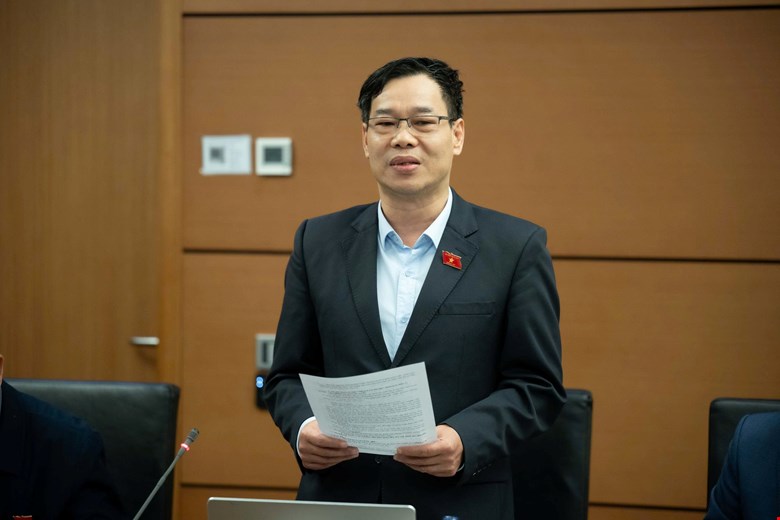Stop livestreaming to sell goods immediately when there is violating content
On the afternoon of November 3, the National Assembly discussed in groups the Draft Law on E-commerce.
The draft law clearly stipulates the responsibilities of the owner of an e-commerce platform in livestream sales activities.
Accordingly, the owner of an e-commerce platform must take measures to prevent, stop real-time broadcasting, remove displayed information and links when detecting livestream sales content in two cases:
livestream sales content violates the law or has language, images, clothes, and unethical social behavior, pure customs;
livestream sales for prohibited goods and goods that are temporarily suspended from circulation on the market at the request of state management agencies; goods and services prohibited from advertising according to the provisions of the law on advertising.
The draft Law also proposes that e-commerce platform owners have a mechanism to display warning content when livestreaming to sell goods and services that can cause unsafety and negatively affect the lives, health and property of buyers. Along with that, it is necessary to store and ensure access to electronic data information containing images and sounds of livestream sales activities for at least 1 year from the time of broadcasting.
Need to focus on the rapid post-inspection mechanism
Commenting on this content, delegate Do Duc Hong Ha (Hanoi delegation) said that this regulation sets a very high requirement but is not clear and may be impossible both technically and legally.

In terms of feasibility and technique, according to delegate Ha, the requirement of real-time prevention requires platforms to have extremely complex and expensive artificial intelligence systems to track, analyze and act immediately on hundreds, thousands of livestream streams at the same time.
Therefore, the delegate said that the above regulation cannot be applied to small and medium-sized enterprises.
Regarding transparency and legality, the requirement to prevent based on unclear deterministic concepts such as: It is against pure ethics and customs. These concepts are subjective and do not have clear legal criteria.
Authorizing a platform to a private enterprise for its own immediate judgment and prevention based on these criteria can lead to abuse of power, arbitrary censorship and violation of freedom of business. Therefore, I propose to amend this regulation in a more feasible and clear direction" proposed the delegate of the Hanoi delegation.
Instead of requiring real-time prevention, the delegate said that we should focus on a quick post-inspection mechanism. For example, the platform must have a mechanism to receive clear violation reports and must take action to remove or stop broadcasting within a reasonable time, for example, within 24 hours from receiving well-founded reports or at the request of a competent State agency. At the same time, it is necessary to review and remove the concept of determination from the conditions to apply technical measures.
Proposal to identify online sellers
Also commenting on the draft Law on E-commerce, delegate Nguyen Thi Lan (Hanoi delegation) assessed the great potential risks related to counterfeit goods, goods... on e-commerce platforms that cause loss of confidence as well as sustainable development of the market.

To ensure the rights of buyers, delegate Lan said that on e-commerce platforms, there needs to be a mechanism for complaints and automatic refunds when transactions are canceled due to goods that are not as described and showing signs of fraud.
owners of e-commerce platforms need to be responsible for authenticating sellers through electronic identification to ensure transparency, strengthening the trust and reputation of Vietnam's e-commerce.
Ms. Lan also added that this regulation is in line with the international trend when in Singapore and China, there are regulations on authentication of seller identities.









